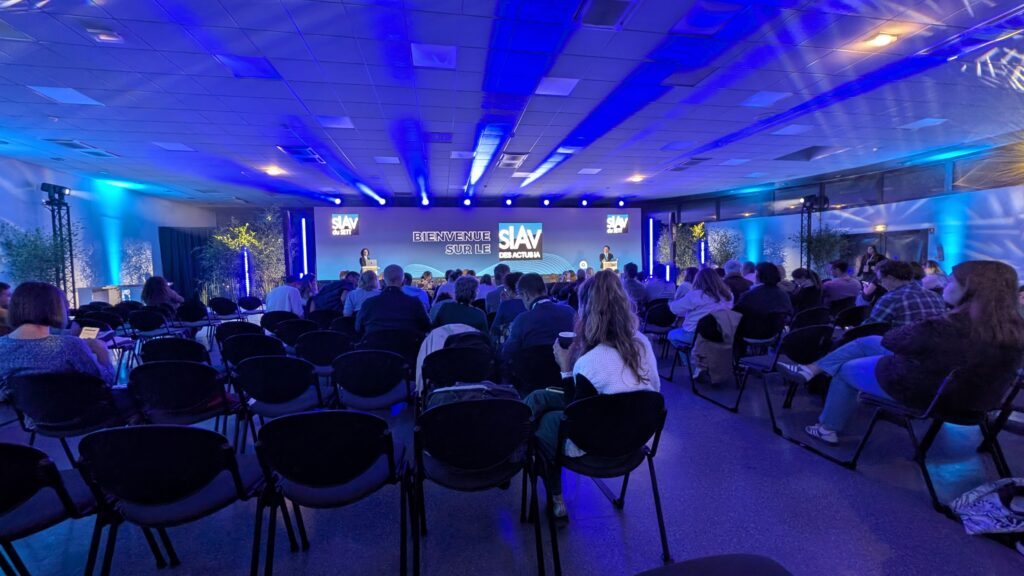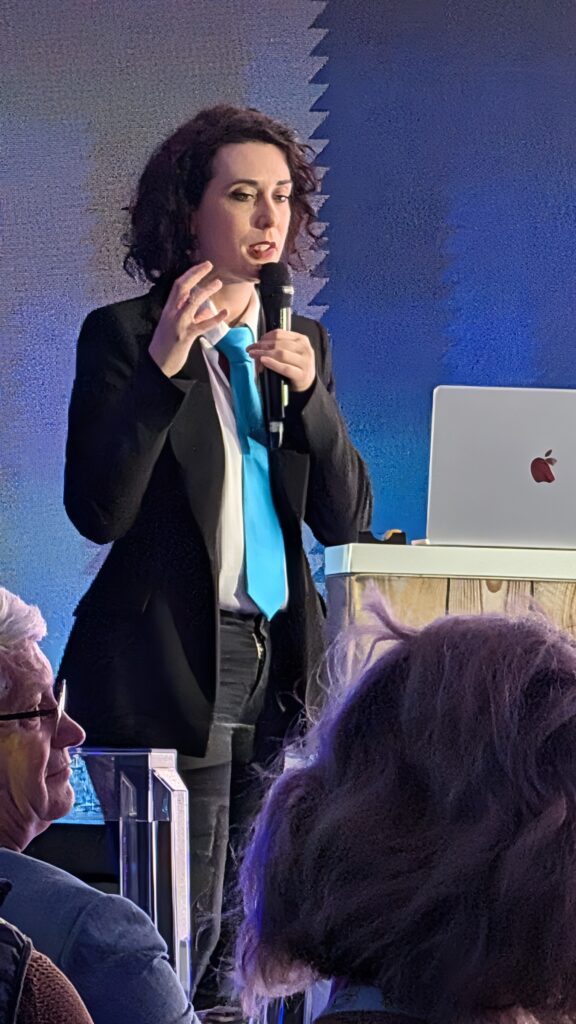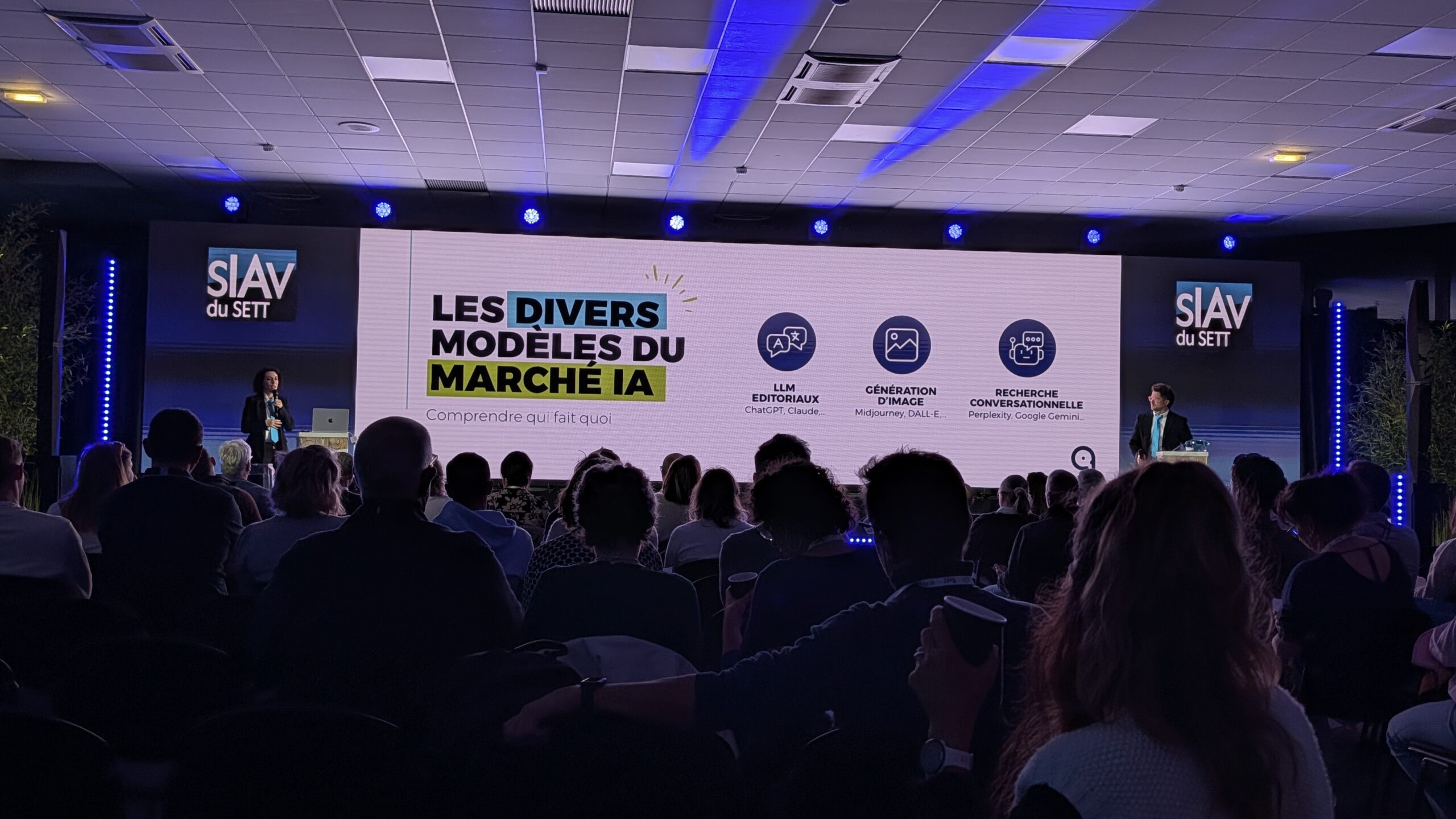As artificial intelligence becomes integral to digital marketing, outdoor hospitality operators are exploring how it can help personalize guest interactions and streamline daily operations without losing the human touch.
That was the message from Yohann Darmayan, co-founder and CEO of Elaia and Geek Tonic, and Pamela Hamille, head of Elaia, during their session “The Emissions SIAve: The AI That’s Revolutionizing (Outdoor) Hotel Marketing” at the SETT 2025, also known as the European Trade Fair of Tourism Trends, on November 4-6, 2025, in Montpellier, France.
Darmayan cautioned that while AI can assist with efficiency, it is not a substitute for human oversight. “It’s a tool that you really need to keep an eye on — you have to carefully analyze whether the data it produces is actually good,” he said (translated from French), referencing the industry phrase “garbage in, garbage out.”
They added that operators should treat AI as an evolving assistant rather than a replacement for staff, encouraging managers to “use it at your own level, without feeling overwhelmed, and in any case, the goal is to make progress.”

Shifts in Search Behavior
The speakers noted that search behavior is evolving beyond traditional keyword use, with AI tools increasingly offering conversational assistance that mirrors natural human inquiry.
They explained that guests are moving toward asking complete questions through text or voice queries, such as, “I want to go on vacation. I have a job. I have three children. What do you recommend?” This change means businesses must ensure their websites are structured to provide comprehensive, precise, and up-to-date information.
Operators can do this by maintaining well-organized FAQs, integrating structured data, and updating site content regularly to remain visible within generative AI search results.

Dynamic Websites and Enhanced Experiences
One speaker described how AI-driven content tools could dynamically adapt a website’s information to each visitor’s interests, suggesting that a campground could feature a personalized tourist guide highlighting nearby activities.
They shared a story about a camper who sought details on local attractions that were already listed online but not in an engaging or accessible format, underscoring the need for interactive, conversational interfaces that replicate human-level service.
Responsible Use and Data Quality
Both speakers emphasized the importance of “feeding” AI systems with accurate, structured data and managing energy consumption associated with large models. They advised operators to maintain control of their digital content by developing a “robust digital duplicate” of their data to ensure accuracy and efficiency.

AI as an Aid, Not a Replacement
In closing, Darmayan and Hamille compared campground managers to “village mayors,” responsible for many roles—from guest services to operations—and argued that AI could reduce routine workload so staff can focus on human-centered hospitality.
“The main challenge today is to be able to answer these questions so that we can be available to address more human interactions,” one speaker said.
SETT 2025 continues until November 6 in Montpellier, featuring sessions on sustainability, digital transformation, and guest experience innovations.
Modern Campground is in attendance and will continue sharing highlights and takeaways for outdoor hospitality professionals.
Featured image by Brian Searl/Modern Campground


